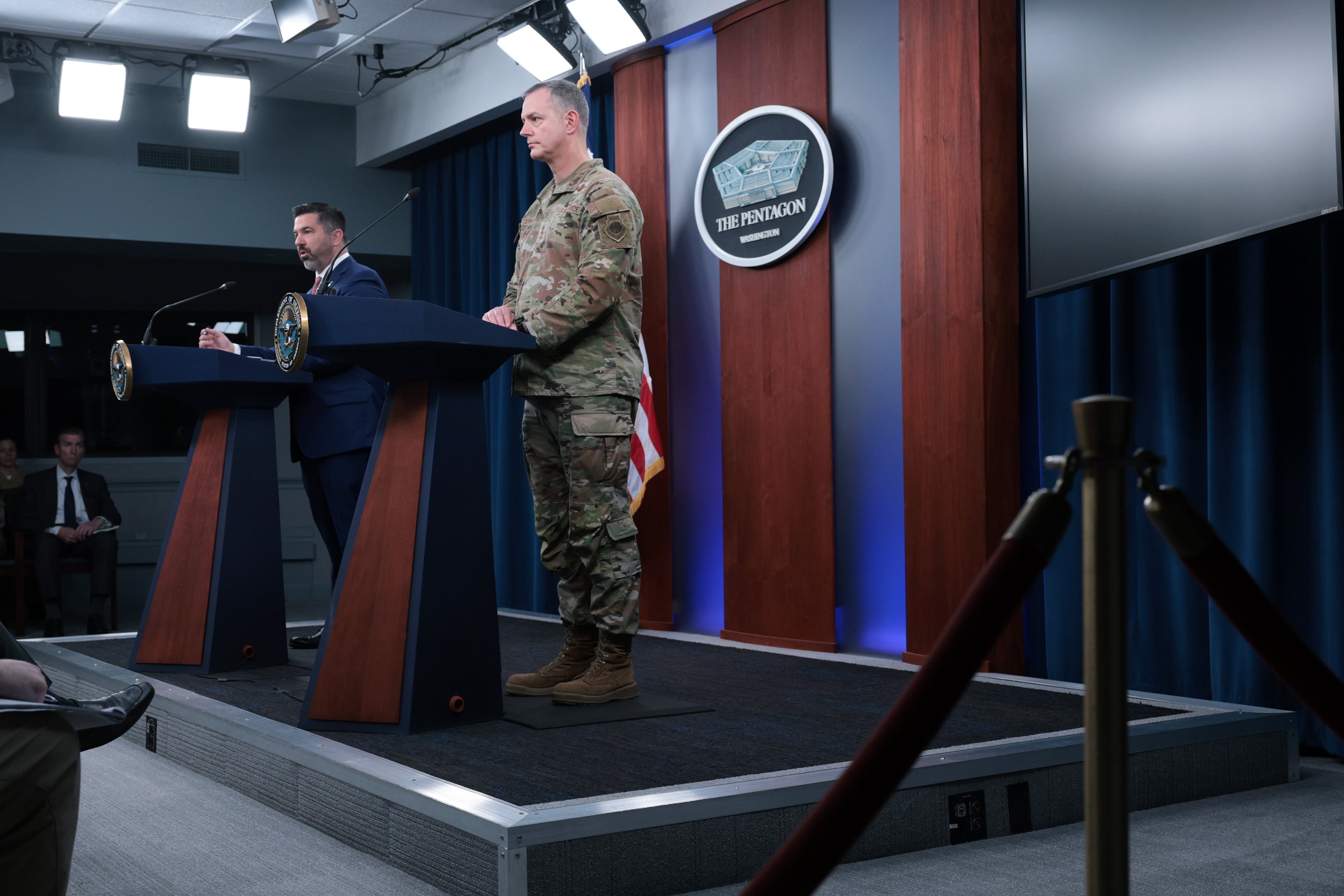U.S. Defense Secretary Pete Hegseth has recommended the president nominate Lt. Gen. Alexus Grynkewich, the Joint Staff’s director for operations, to lead U.S. forces in Europe, according to a senior U.S. defense official, U.S. official and two congressional aides.
The nomination to head European Command, which is not yet final, comes at a moment of uncertainty for America’s military commitment to Europe, potentially including cuts to U.S. forces on the continent and a lesser role in the NATO alliance.
The White House still needs to review the nomination and pass it to the Senate before it becomes official, the sources said, speaking on the condition of anonymity to discuss the ongoing process.
Inside the Pentagon, Grynkewich is widely considered one of America’s most promising general officers. A former F-16 and F-22 pilot, he spent four years on the staff of Central Command helping lead the U.S. military in the Middle East, including its Air Force component there.
He entered his role on the Joint Staff in April 2024 and has since helped steer U.S. forces around the world in a year marked by the wars in Ukraine and Gaza and China’s growing military power. In that role, he has also worked closely on the Pentagon’s support for Ukraine’s self-defense.
Under the Trump administration, the Defense Department has taken a much firmer tone toward its European allies. Like President Donald Trump, Hegseth has argued NATO countries need to raise military spending, up to 5% of GDP from the current 2% floor.
Hegseth has also taken a smaller role in the group of countries that have gathered for the last three years to support Ukraine’s self-defense. Britain and Germany chaired the gathering’s last meeting in April, with Hegseth attending virtually.
“Leaders of our European allies should take primary responsibility for defense of the continent,” Hegseth said in a February speech at NATO headquarters.
The head of European Command has also always served as Supreme Allied Commander Europe, a top military role within NATO held by an American dating back to Dwight D. Eisenhower.
In March, reports that Hegseth may cede that position prompted a rare public stand by the chairs of the House and Senate Armed Services Committees.
“We will not accept significant changes to our warfighting structure that are made without a rigorous interagency process, coordination with combatant commanders and the Joint Staff and collaboration with Congress,” the two chairs wrote.
In an April hearing, the current head of EUCOM, Gen. Christopher Cavoli, defended America’s military commitment to Europe and argued the country should maintain its presence there.
“It’s my advice to maintain that force posture as it is now,” Cavoli said in a House Armed Services Committee hearing.
There are currently 80,000 U.S. troops in Europe after the Biden administration surged 20,000 more to the continent following Russia’s 2022 invasion of Ukraine.
The Pentagon is reviewing its spread of forces around the world — an effort led in part by policy officials who formerly called for cuts in America’s presence in Europe.
European officials have said they expect the U.S. to withdraw troops and have heard from the Pentagon that the cuts may start with the 20,000 brought three years ago.
A Defense Department spokesperson said no decisions have yet been made during the force posture review.
Cavoli is expected to retire around early July, one of multiple top U.S. military officials to leave posts in Europe this year. Gen. James Hecker, head of the U.S. Air Force in Europe, is retiring in May and does not yet have a nominated successor. Hegseth also fired Vice Adm. Shoshana Chatfield, who held a senior role within NATO, in April.
Separately, the Washington Post reported that Hegseth has recommended Vice Adm. Brad Cooper, deputy commander of U.S. Central Command, to lead U.S. forces in the Middle East, passing over Army Vice Chief of Staff Gen. James Mingus, who had been presumed as the post’s top contender.
A Pentagon spokesperson referred questions to the White House, which didn’t respond to a separate request for comment.
Editor’s note: The original version of this story misstated the number of U.S. troops in Europe. The total has been corrected.
Noah Robertson is the Pentagon reporter at Defense News. He previously covered national security for the Christian Science Monitor. He holds a bachelor’s degree in English and government from the College of William & Mary in his hometown of Williamsburg, Virginia.





